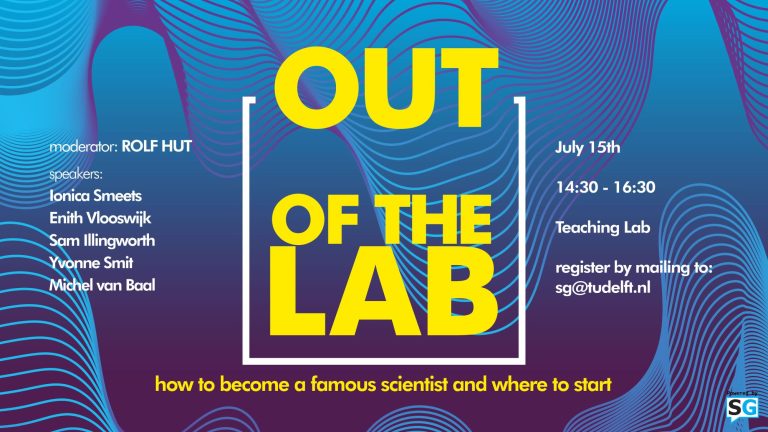Want to know how to get your results in the media? Rolf Hut shows how the media works in his Out of the Lab symposium. Organised specially for researchers.
(Illustration: Electrochemical Society)
Researchers can learn how to improve their chances of getting their work in the media at the symposium on Monday afternoon, 15 July 2019. Moderator and organiser, Dr Rolf Hut, wrote a regular column on tinkering in the Volkskrant (national newspaper); has published two books; and features regularly on Radio1 as a guest of the Nieuws&Co show. He regards himself as having been lucky with the people who taught him how the media works. He now wants to share this knowledge with other researchers.
So how do you bridge the gap between science and the larger audience? Hut invited two speakers to explore the topic. Professor Ionica Smeets lectures in science communication at Leiden University. She shares her findings on how scientists communicate with general audiences. Her colleague, Dr Sam Illingworth, is a senior lecturer of science communication at Manchester Metropolitan University. He researches the use of poetry to communicate scientific results to harder-to-reach target groups.
Field experience will be added by three practitioners of science communication. Dr Yvonne Smit is Editor in Chief of the Universiteit van Nederland YouTube Channel; Michel van Baal is Chief Communications Officer at TU Delft; and Enith Vlooswijk is a freelance science writer for various media.
‘Not every researcher has to learn these things the hard way’
“Once you understand how the media works, it’s easier to work with them,” says Hut. “For example, if you only submit your comments on their texts one and a half weeks later, they’re nine issues on.” Rendering all your careful editing work in vain.
Do you have to be expressive and outgoing to be noticed by the media? Hut doesn’t think so. “As an extrovert, I’m admittedly less prone to experiencing barriers in social situations. But an extrovert researcher with no knowledge of how the media works will probably fail in getting his work across. An introvert researcher who sends a polite mail in which she makes clear that she knows what a journalist needs, has a much bigger chance of communicating her work.”
Hut thinks the communication landscape has changed considerably in the last ten years. It no longer suffices to dump a publication on the communications department for them to write a press release. Researchers need to know the services that communications departments offer if they want to get their results in the media. “Not every researcher has to learn these things the hard way,” says Hut.

- Out of the Lab, 15 July 2019, 14:30 – 16:30, Teaching Lab. Register by mailing to: sg@tudelft.nl
- Video: Sam Illingworth | The Poetry of Science
Do you have a question or comment about this article?
j.w.wassink@tudelft.nl


Comments are closed.